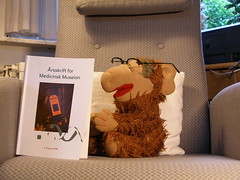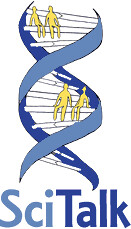Det har lige kommet rapporter om at også Alf læser årsskriftet:

Det burde vel få konsekvenser for udformingen af 2006-udgaven 🙂
Det har lige kommet rapporter om at også Alf læser årsskriftet:

Det burde vel få konsekvenser for udformingen af 2006-udgaven 🙂
Max Planck Research Network on History of Scientific Objects Seminar comes to Copenhagen 9 -11 May, 2006. Here’s the announcement for the whole European tour:
With its Wandering Seminar on Scientific Objects the Max Planck Research Network establishes a new form of international cooperation. The principal aim of this project is to provide junior scholars of the history of science with first hand information about the latest developments in the field of material culture of science. Participants will have the opportunity to visit and work with rare collections Europe-wide. Museums will present themselves as sites for research and working place for historians of science.
Read More
EASST Conference “Reviewing humanness: bodies, technologies and spaces”, 23-26 August, 2006, University of Lausanne. Paper and session proposals will now be accepted up to the new deadline of January 16th, 2006 Session proposals are provisionally published on the conference website ( see “what’s new”). Send your session proposal as soon as possible to easst2006@unil.ch
Read More
EAMHMS (European Association of the Museums of the History of the Medical Sciences) is holding its 13th congress in Riga, Latvia, 23-27 August 2006. The congress theme is ‘Medical museums and disability’. The Paul Stradin Museum of the History of Medicine in Riga is hosting the meeting. Read more here.
(Oplægget blev oprindeligt skrevet den 21. nov, men pga de mange kommentarer er det opdateret til den 6. dec)
Hører biobanker — og især det materiale som er i dem — til Medicinsk Museions aktivitetsområde?
Read More
Two of my favourite study objects right now are science blogs and gene arrays (there are in fact some interesting structural analogies between these seemingly disparate phenomena which are worth exploring further). So I searched Technorati today (they are now listing amazing 22,4 million blogs) for ‘gene array’ and found
Read More
The worlds of media, consulting, medical science and literature are interacting in different and interesting ways, like the Café Scientifique organisation. Another initative has been taken by Plumbland Consulting Ltd., a consulting company owned by two partners with a bioscience background and a strong interest in science policy and science communication. They have started SciTalk, a new contact service  aimed at linking scientists and writers together to give authors inspiration and bring a more realistic picture of (medical) science into fictional writing — see this article in the Times Higher Education Supplement (21 Oct).
aimed at linking scientists and writers together to give authors inspiration and bring a more realistic picture of (medical) science into fictional writing — see this article in the Times Higher Education Supplement (21 Oct).
DR1’s program ‘Harddisken’ har lige lavet et indslag om vores blog. Undertegnet er blevet interviewet i 10 min. — om vores egen blog, om blogging-fænomenet og om blogs som forskningskommunikation. Lyt på Harddiskens hjemmeside
Here’s a slightly delayed, but interesting news item from the world of collections: the RLG (which is a non-profit Mountain View-based organization with the aim to help scholars get ‘access to research materials held in libraries, archives, and museums’) had a meeting in July 2005 under the heading ‘Libraries, Archives, & Museums—Three-Ring Circus, One Big Show?’:
Read More
It interesting to follow different attempts to create virtual medical history archives and exhibitions on the web, even if they don’t focus on recent biomedicine/biotechnology. One can alway learn something new; in this case — which many of you probably already know of — the Max-Planck-Institute for the History of Science’s (Berlin) on-line project, The Virtual Laboratory, which focuses on the history of the experimentalization of life in the 19th and early 20th centuries.
Read More
© 2025 Emeritus.
